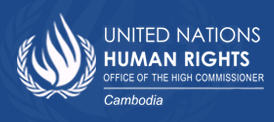Cambodian civil society

Civil society is defined as individuals and groups who voluntarily engage in forms of public participation and action around shared interests, namely the maintenance of peace and security, the realization of development, and the promotion and respect of human rights (
A Practical Guide for Civil Society: Civil Society Space and the United Nations Human Rights System, p. 3).
Civil society actors include a wide range of individuals and groups: non-governmental organizations, human rights defenders, social movements, interest groups, faith-based groups, academia, media and other individuals whose interests and activities are in resolving and addressing issues that are important to their society.
Civil society has a number of roles in the promotion and protection of human rights, including raising awareness of rights, assisting communities in articulating concerns, shaping strategies, influencing policy and laws, and pressing for governmental accountability. Civil society also collects and channels views of communities so that decision-making on public policies can be informed more fully, and at the same time, fulfils services for those who are at risk and vulnerable on multiple fronts.
The civil society in Cambodia has existed since the rebirth of the Cambodian democracy in 1993, the year that Cambodia avowed its commitment to security and peace building, following the signing of the Paris Peace Accord and the setting up of national elections with the assistance of the United Nations Transitional Authority in Cambodia.
More recently, through the dynamic activism of civil society actors, democratic space in Cambodia has expanded greatly comparing to years prior to the introduction of the Law on Peaceful Demonstration in December 2009. In 2013, Cambodia saw an emergence of civil society role in democratic, social and political affairs. Hundreds of people participated in the massive street protests and demanded changes in the social, political and economic situation of the country. In attendance were civil society actors such as trade unionists, garment workers, human rights defenders, students, media and the general populace, jointly expressing their concerns on a variety of issues ranging from fair wages and land disputes to election results.
